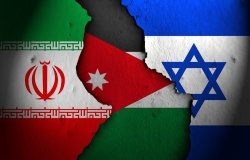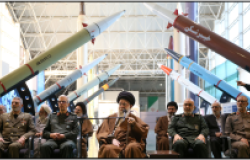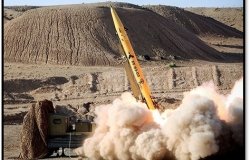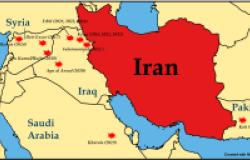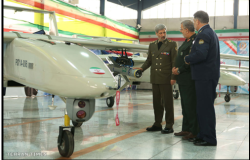Book Launch - <i>The Five Front War: The Better Way to Fight Global Jihad</i>
with Daniel Byman, Director, Center for Peace and Security Studies, and Associate Professor, Edmund A. Walsh School of Foreign Service, Georgetown University
Overview
This event was co-sponsored by the Woodrow Wilson Center (International Security Studies and Middle East Programs), the Council on Global Terrorism, and Georgetown University's Center for Peace and Security Studies.
Although Al-Qaeda has not attacked the U.S. homeland since the catastrophic strikes of September 11, 2001, the pace of terrorist attacks overseas – from Madrid to Bali – has increased. Byman noted that the nature of this terrorist organization has "morphed" from that which attacked America on 9/11. Al-Qaeda's core organization is weaker and less capable of conducting a catastrophic strike, but its cause is more popular as Bin Laden's message taps into local grievances, such as the Arab-Israel conflict, and the spike in anti-Americanism in the Muslim world in reaction to the U.S. occupation of Iraq.
In Iraq, which was not a terrorist front before the 2003 invasion, Byman stated that the U.S. "failures of planning and execution have allowed the terrorists to gain a foothold" and to tap into "a lethal mix of religious inspiration and xeonophobic nationalism." Significant deterioration in the U.S. strategic position is also evident on the Afghan border, where Al-Qaeda has had some success in establishing a safe haven in the tribal areas in Pakistan similar to that which it enjoyed in Taliban-ruled Afghanistan.
According to Byman, the United States is not threatened by some generic threat of terrorism. Rather, the United States faces a specific set of foes, with Osama bin Laden's Al-Qaeda organization at the top. Accordingly, the focus of U.S. strategy should be on the relatively small number of groups and individuals capable of conducting a mass casualty attack on the United States and its close allies. Such a strategy would have five main components, which Byman briefly outlined.
1. The Military – The military can deter overt state sponsors of al-Qaeda-linked terrorists, such as the Taliban, through the threat of regime change. In the absence of overt state sponsorship, the primary role of the U.S. military is to train and assist allied governments that are combating such adversaries on their home turf.
2. The War of Ideas – The U.S. effort to win heart and minds has been "useless." Rather than trying to justify unpopular policies, U.S. propaganda should emphasize the jihadists' unpopular deeds and theology.
3. Intelligence – Intelligence cooperation with local partners is the most important counterterrorism tool since Al-Qaeda members can hide among local Muslim communities in Europe or in remote places (such as in Yemen).
4. Homeland Defense – Since defenses are costly and imperfect, their focus should be "on realistic threats rather than on worst-case scenarios that have little to do with the jihadists's own goals."
5. Democratic Reform – Democracy promotion is both difficult and risky for the fight against terrorism. Byman observed that popular elections would likely bring anti-American Islamists to power in many countries. He advocated U.S. support for democracy promotion when it is moving on its own organically within a society. Alternatively, where such a transition is not occurring, Washington should support the development of institutions that would be a foundation for a democratic civil society.
Thank you for your interest in this event. Please send any feedback or questions to our Events staff.



